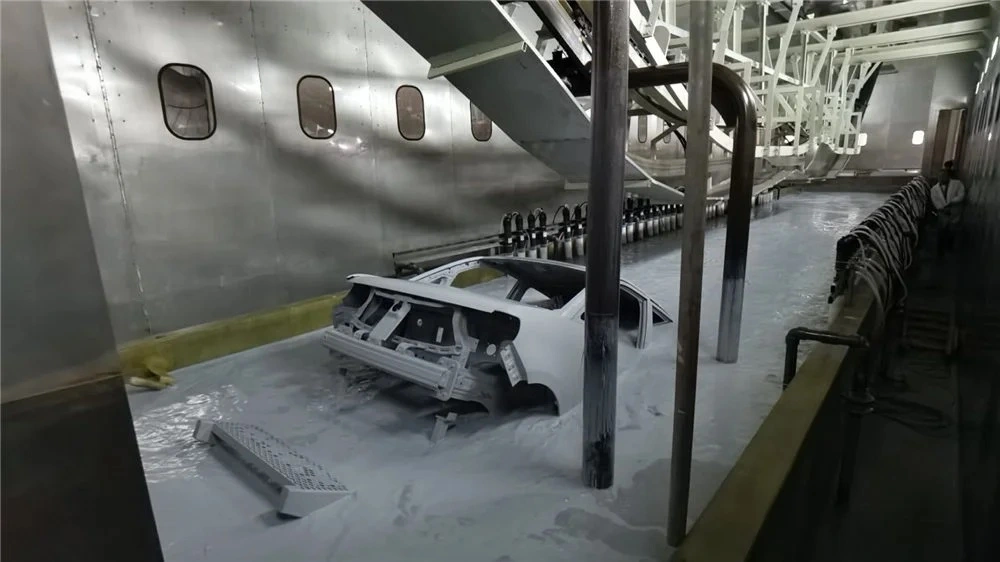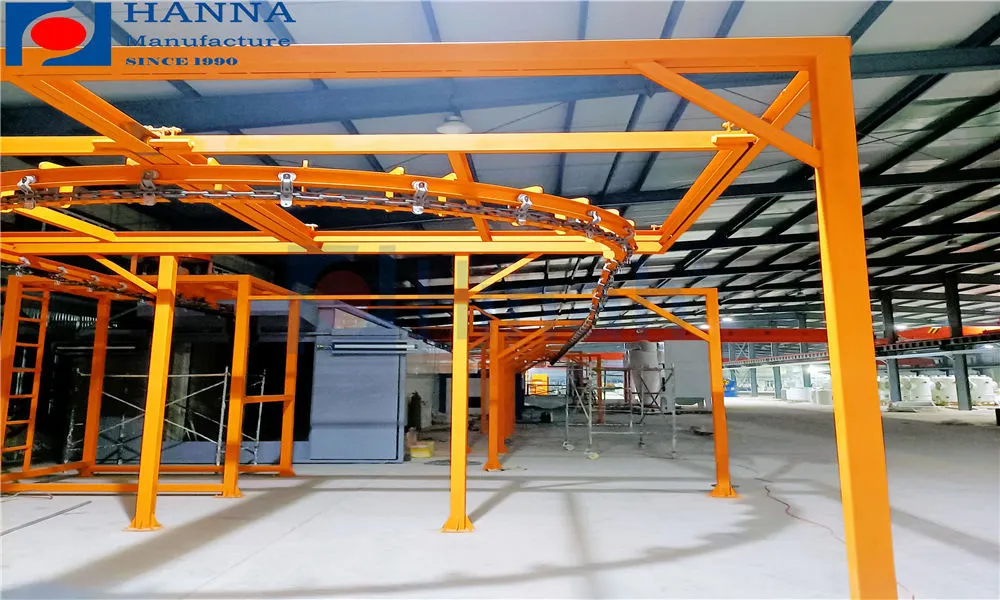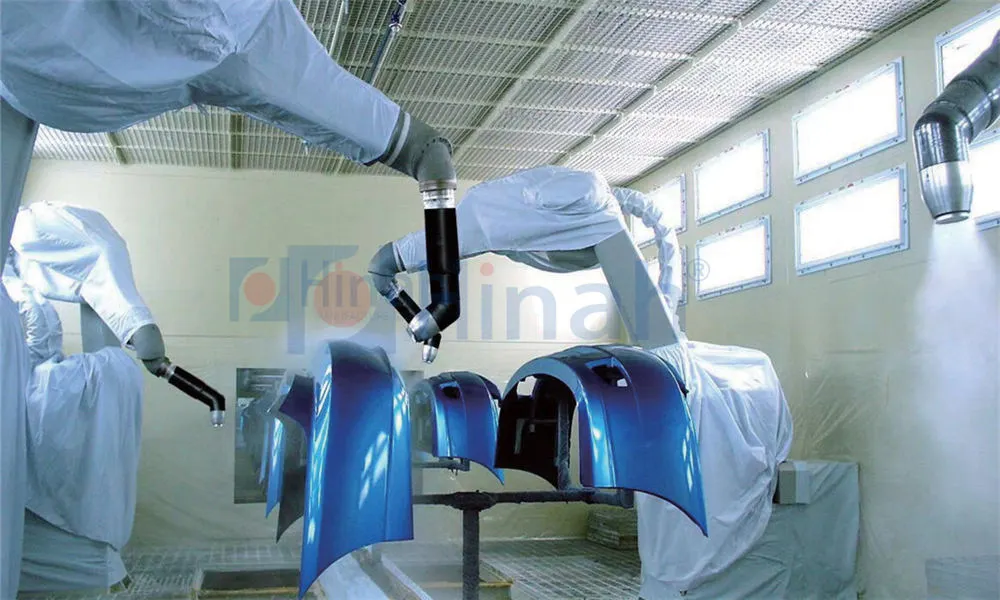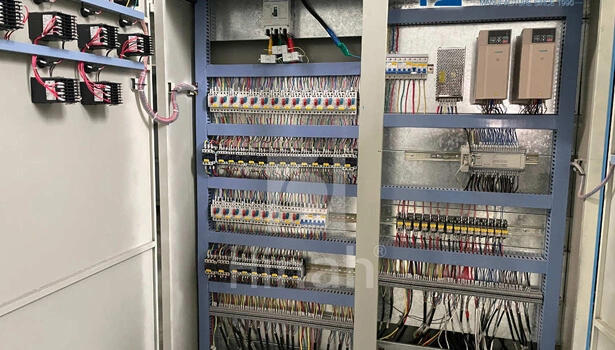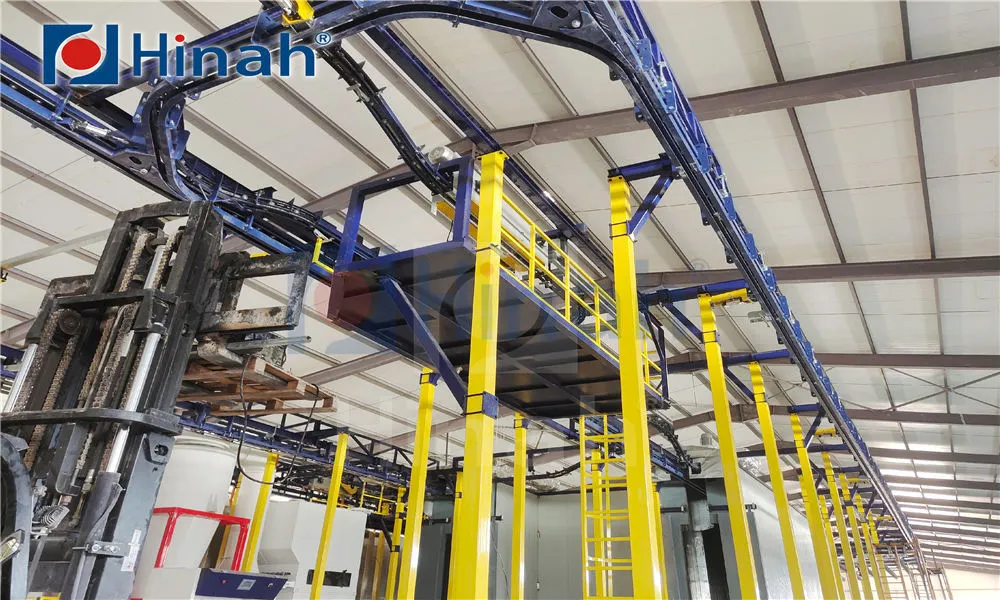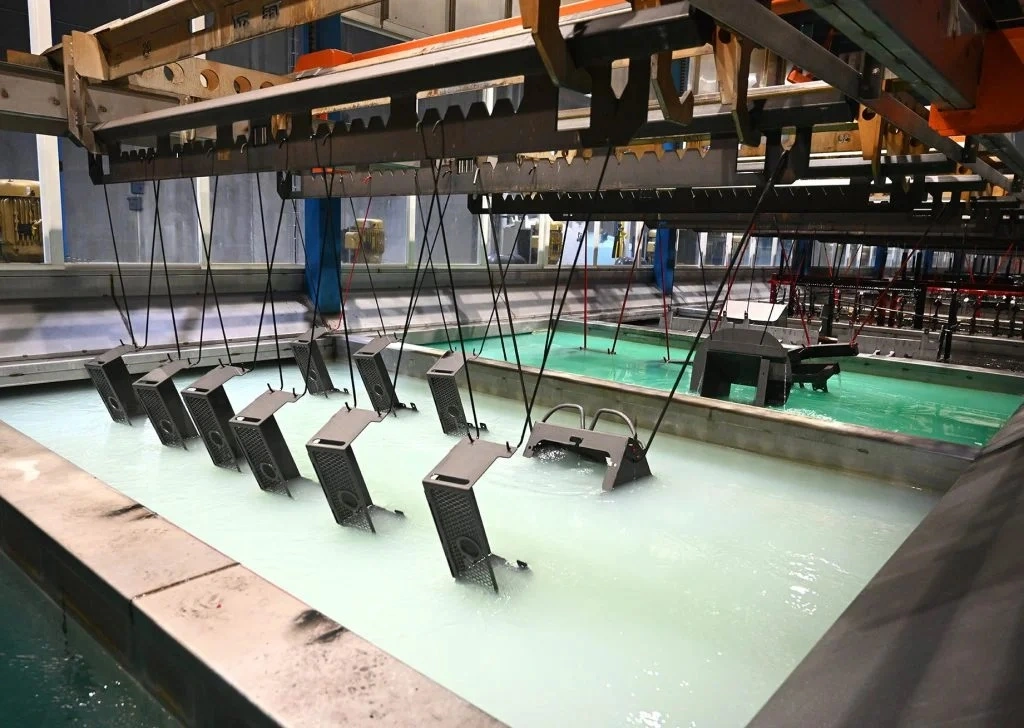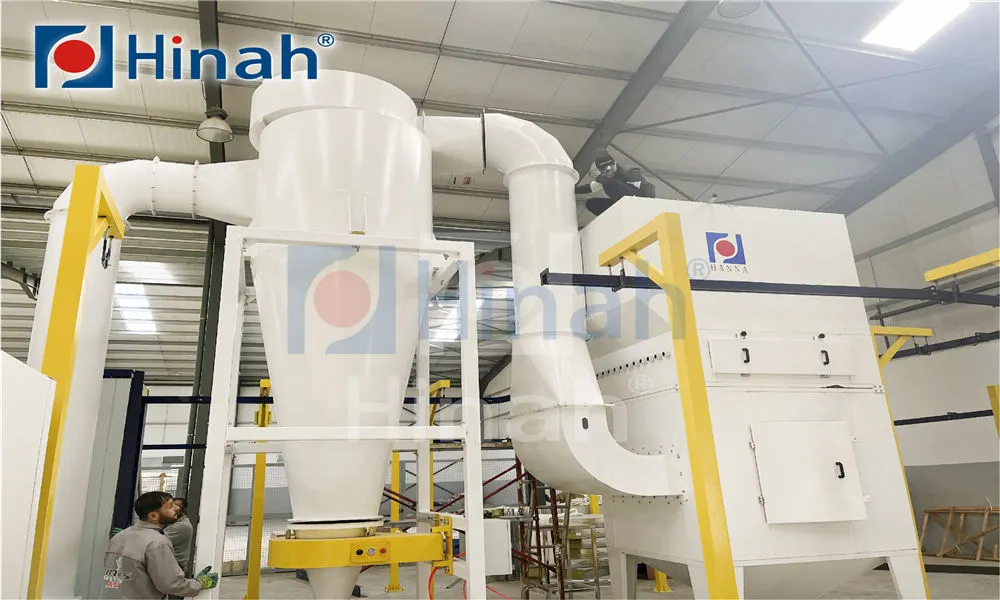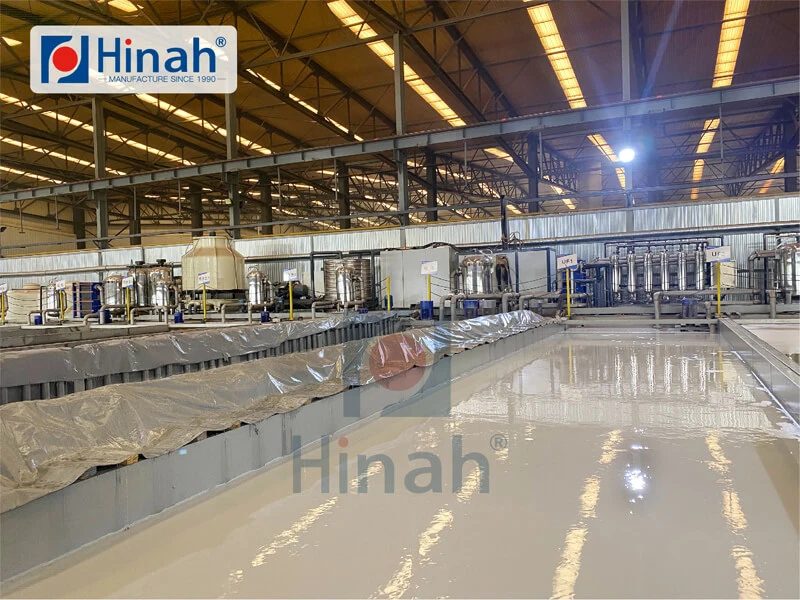Selecting the right powder coating plant supplier is a pivotal decision that impacts your production efficiency, coating quality, operational costs, and long-term success. This isn't merely about purchasing equipment; it's about forging a partnership with a provider capable of delivering a complete, reliable, and optimized solution tailored to your specific needs. Whether you're setting up a new line, expanding capacity, or upgrading existing technology, understanding the key aspects of a powder coating plant supplier is essential. Here are the 5 critical factors to guide your selection process.
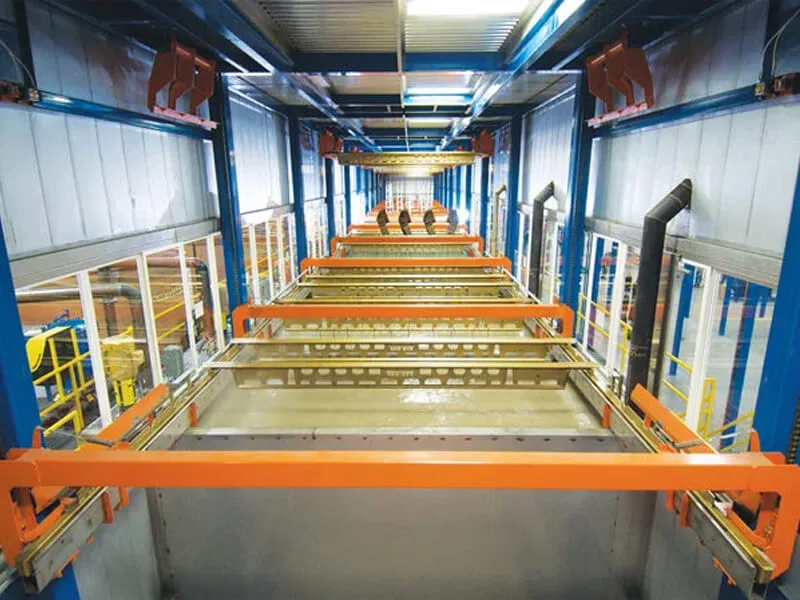
1. Technical Expertise & Industry Experience
The foundation of a competent powder coating plant supplier lies in their deep technical knowledge and proven track record within the industry.
Process Mastery: Suppliers must possess an intimate understanding of the entire powder coating process chain – from pre-treatment (cleaning, phosphating, chromating) and drying, through application (manual, automatic guns, reciprocators, robots), curing (infrared, convection ovens), and material handling (conveyor systems). They should grasp how each stage interacts and impacts the final finish.
Application Knowledge: Expertise isn't just about the hardware. A top supplier understands powder chemistry, application techniques for different part geometries, achieving specific film builds, color change procedures, and troubleshooting common coating defects (orange peel, pinholes, poor adhesion). They can advise on optimal gun settings, booth airflow, and oven profiles.
Project Management: Delivering a complete powder coating plant is a complex engineering project. Look for suppliers with strong project management capabilities, including system design, integration, installation, commissioning, and training. Experience managing projects of similar scale and complexity to yours is crucial.
Proven Track Record: Evaluate the supplier’s history. How long have they been supplying powder coating plants? What industries do they primarily serve (automotive, architectural, furniture, general industry)? Request case studies and references from clients with similar applications. A supplier with extensive experience is more likely to anticipate challenges and deliver robust solutions.
2. Comprehensive Product Range & Technology
A leading powder coating plant supplier should offer a complete ecosystem of equipment and embrace modern technology.
End-to-End Solutions: Seek suppliers capable of providing the entire line: pre-treatment systems (spray, immersion), powder application booths (manual, automatic), recovery systems (cartridge, cyclone), curing ovens (electric, gas, IR, hybrid), material handling conveyors (overhead, monorail, belt, chain-on-edge), control systems, and powder delivery systems (pumps, hoppers, sieves).
Equipment Quality & Innovation: Assess the build quality, materials used (stainless steel in critical areas?), and component sourcing (reputable brands for pumps, guns, filters, burners, controls). Do they invest in R&D? Look for features enhancing efficiency, like advanced recovery systems minimizing powder waste, energy-efficient ovens with heat recovery, intuitive touchscreen HMIs, and IoT capabilities for remote monitoring and predictive maintenance.
Technology Partnerships: Often, suppliers integrate best-in-class components (e.g., Gema, Wagner, Nordson guns; Eisenmann booths; Durr recovery). Understanding their partnerships gives insight into the quality and supportability of the core technology.
Customization Capability: While standard modules exist, most plants require customization. Can the supplier adapt booth sizes, oven configurations, conveyor layouts, and control logic to fit your unique factory footprint, part mix, and throughput requirements? Flexibility is key.
3. Custom Engineering & System Design Capabilities
Off-the-shelf solutions rarely fit perfectly. The ability of your powder coating plant supplier to engineer a bespoke system is paramount.
Needs Assessment & Process Optimization: A good supplier starts by thoroughly understanding your production goals, part specifications (size, weight, material, geometry), desired throughput (parts per hour), quality standards, available space, and budget. They should perform a detailed process analysis to optimize workflow and identify bottlenecks.
Detailed Layout & Simulation: Expect comprehensive 2D and 3D CAD designs of the proposed plant layout, integrating seamlessly into your factory. Advanced suppliers might offer simulation software to model material flow, oven heating profiles, or booth extraction efficiency before construction begins, minimizing costly rework.
Turnkey Project Execution: The best suppliers manage the entire project lifecycle: detailed engineering, equipment manufacturing/fabrication, sourcing third-party components, installation, electrical and controls integration, rigorous commissioning (including process validation runs), comprehensive operator training, and final handover. This single-point responsibility significantly reduces project risk for the buyer.
Scalability & Future-Proofing: The design should consider potential future needs. Can the line be easily expanded? Can it accommodate new part types or higher volumes? Does the control system allow for future upgrades or integration with factory MES/ERP systems?
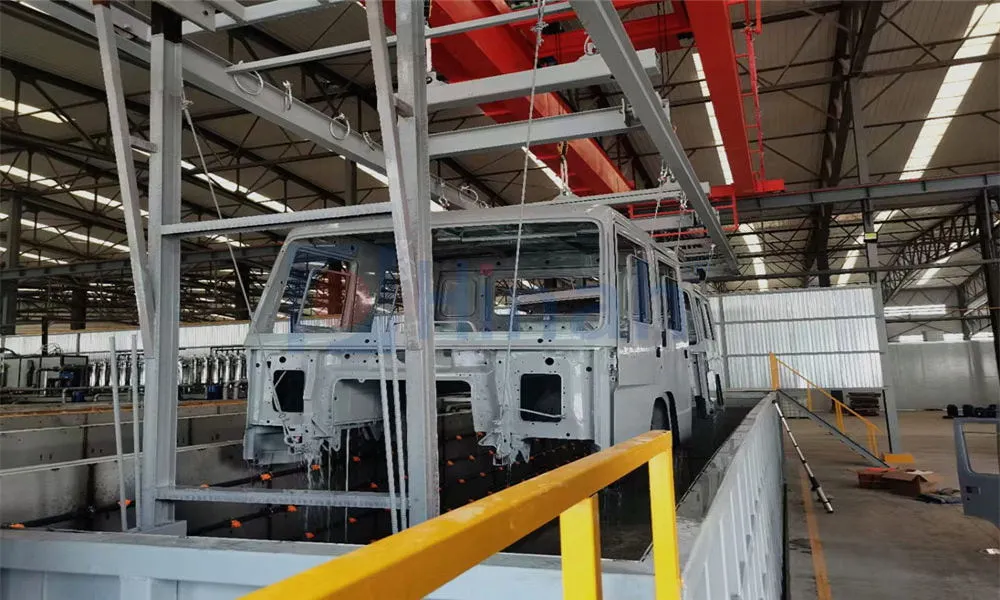
4. Robust After-Sales Support & Service Network
The relationship with your powder coating plant supplier truly begins after the line is commissioned. Unwavering support is non-negotiable for minimizing downtime.
Comprehensive Warranty: Understand the warranty terms clearly – duration, coverage (parts, labor), and exclusions. A strong warranty reflects the supplier's confidence in their equipment.
Technical Support Hotline: Immediate access to knowledgeable technical support via phone, email, or remote diagnostics is crucial for troubleshooting issues quickly and minimizing production stoppages.
Spare Parts Availability & Logistics: Ensure the supplier maintains a well-stocked inventory of critical spare parts (filters, nozzles, heating elements, sensors, conveyor components) and has efficient logistics to deliver them rapidly, anywhere. Ask about their parts distribution network.
Field Service Engineers: A global or extensive regional network of qualified, factory-trained field service technicians is essential for on-site repairs, preventive maintenance, and complex troubleshooting. Check response time commitments.
Preventive Maintenance (PM) Programs: Proactive suppliers offer structured PM contracts. Regular inspections, lubrication, calibration, and component replacement based on usage hours prevent unexpected failures and extend equipment life, offering significant ROI.
Training Programs: Ongoing training for your maintenance and operational staff – covering operation, routine maintenance, troubleshooting, and safety – ensures optimal performance and reduces dependency on external support.
5. Commitment to Sustainability & Cost Efficiency
Modern powder coating operations must be environmentally responsible and economically viable. Your powder coating plant supplier should be a partner in achieving both.
Energy Efficiency: Powder coating is inherently more eco-friendly than liquid paint (no solvents), but the plant itself consumes significant energy, especially ovens. Suppliers should offer high-efficiency solutions: well-insulated ovens, high-efficiency burners, heat recovery systems (preheating make-up air or process water), and potentially IR/hybrid curing options for specific parts, drastically reducing gas/electricity consumption.
Powder Utilization & Waste Reduction: Advanced recovery systems (high-efficiency cartridge filters, cyclones) are vital for reclaiming overspray powder, boosting transfer efficiency (often >95%), minimizing waste, and reducing raw material costs. Look for suppliers emphasizing high-recovery rates and low waste generation.
Emission Control & Compliance: While powder coating produces minimal VOCs, pre-treatment chemicals and oven exhaust may require abatement. Suppliers should design systems compliant with local environmental regulations and offer solutions like scrubbers or thermal oxidizers if needed.
Operational Cost Optimization: Beyond the initial purchase price, consider the Total Cost of Ownership (TCO). An energy-efficient, reliable plant with high powder utilization and low maintenance requirements, supported by a responsive service team, delivers far lower long-term operational costs than a cheaper, less efficient system prone to breakdowns and waste. A good supplier will help you model TCO.
Sustainable Materials & Practices: Inquire about the supplier's own sustainability initiatives – use of recycled materials in construction, energy-efficient manufacturing processes, waste reduction programs – demonstrating a holistic commitment.
Choosing a powder coating plant supplier is a strategic investment. By meticulously evaluating potential suppliers across these five critical dimensions – Technical Expertise & Industry Experience, Comprehensive Product Range & Technology, Custom Engineering & System Design Capabilities, Robust After-Sales Support & Service Network, and Commitment to Sustainability & Cost Efficiency – you significantly increase your chances of selecting the right partner.
Don't settle for just an equipment vendor. Seek a true collaborator: a powder coating plant supplier with the depth of knowledge, breadth of solution, design ingenuity, unwavering support, and forward-thinking approach necessary to deliver a coating line that meets your exact specifications, maximizes your operational efficiency, ensures exceptional finish quality, minimizes environmental impact, and provides a strong return on investment for years to come. Thorough due diligence, including site visits to existing installations and detailed discussions about your specific challenges, is the key to making an informed and successful choice. Your perfect coating solution starts with the right powder coating plant supplier.


